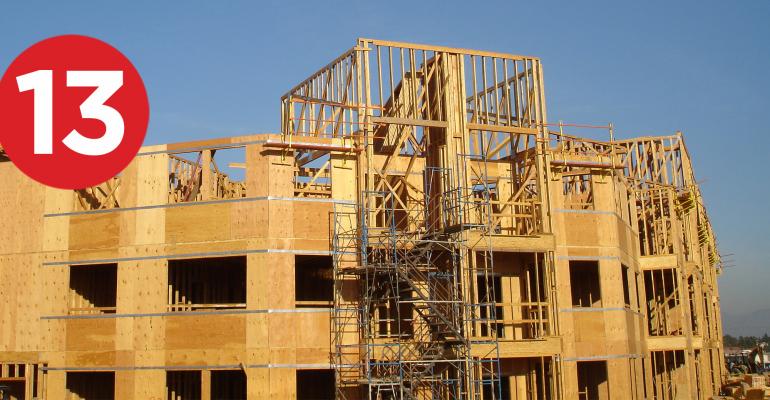- To Ease Housing Crisis, California Lawmakers Vote to Open Suburbs to Development “For years the Legislature has struggled to follow their prescription to increase urban density, often because lawmakers fear the ire of suburban voters whose preferences for single-family home living have been regarded as politically sacrosanct. On Thursday the state’s Legislature took a big step toward rewriting that bargain, advancing a bill that would allow two-unit buildings on lots that for generations have been reserved exclusively for single-family homes.” (The New York Times)
- Ace Hardware on Track to Open More Than 170 Stores in 2021 “Ace Hardware is riding the home spending wave. Ace, the largest retailer-owned hardware cooperative in the world, has opened 110 new stores so far in 2021. It is planning to open at least an additional 60 locations by the end of the year. Ace captured the top spot in the "Highest in Customer Satisfaction Among Home Improvement Retail Stores" category in the J.D. Power 2021 U.S. Home Improvement Retailer Satisfaction Study.” (Chain Store Age)
- WeWork Awarded First $10M Federal Coworking Contract “The U.S. General Services Administration (GSA) — the federal agency responsible for finding workspaces for government employees — has contracted WeWork and four other coworking providers for $10 million to provide flexible office space to government agencies and workers. The deal, announced Thursday, represents the first foray into coworking for the federal government, which is the largest occupier of office space.” (Commercial Observer)
- What’s Fueling the Rapid Expansion of Phoenix CRE “There’s no stopping Phoenix commercial real estate—or so it seems. The Valley lies at the very convenient intersection of Arizona’s business-friendly environment, solid workforce base and reliable infrastructure. And there is room for more—more construction, more investment, more opportunities. Bob Osbrink, the recently appointed executive vice president & market leader of Matthews Real Estate Investment Services Phoenix, expects the metro to grow some more in the next few years.” (Commercial Property Executive)
- These Investors Still Believe in Offices and Are Showing It by Shelling Out Cash “These investors have all spent $4B-plus on offices during the time of Covid.” (Bisnow)
- There’s a Battle Brewing Over Salaries for Remote Workers—and It Could Change the Way Everyone Gets Paid “Spurred by work from home, tech companies are extending big-city salaries to small-town America. The move could rewrite paychecks from Indiana to India.” (Insider)
- Westfield Files Lawsuit Against Starbucks Over Lease at WTC Mall “The $5.2 million suit alleges that Starbucks tried to break its lease at the World Trade Center Mall seven years ahead of schedule.” (The Real Deal)
- David Beckham’s Soccer Club Accused of Breaking Deal to Build Florida Public Park “David Beckham’s Florida soccer club has been accused of reneging on a promise to build community sports facilities and a recreational park on public land around its $160m stadium in Fort Lauderdale. A 2019 deal between the city and Miami Beckham United, the owners of the former England captain’s Major Soccer League team Inter Miami CF, required the club to construct the facilities “in the most expeditious manner” alongside the stadium in return for a 50-year rent-free lease.” (The Guardian)
- Repair Work Paused on S.F.’s Millennium Tower Due to Continued Sinking “The $100 million fix meant to shore up the famously sinking and leaning high-rise has paused.” (San Francisco Chronicle)
- GM Requiring All U.S. Salaried Workers to Report Their Vaccination Status “General Motors Co. GM -has required all U.S. salaried workers to report their Covid-19 vaccination status as more companies confront the thorny question of how to assess workforce immunity. GM earlier this month required all of its roughly 48,000 U.S. white-collar workers to disclose, confidentially through the company’s intranet, whether they have been immunized, a GM spokesman said Thursday. Those who answered yes were required to submit proof of vaccination by this past Monday, he said.” (The Wall Street Journal)
- NYC Outlines Its Plan for Public School Safety Amid Concerns about Delta “As part of the new protocols, the city will test a random sample of 10 percent of unvaccinated people in schools every other week, a group that will include only students later this fall, when all adults will be required to be fully vaccinated, the mayor said. That means all children in elementary school will be subjected to testing, pending parent consent, while only unvaccinated middle and high schoolers will be tested.” (The New York Times)
- Why Is the Supply Chain Still So Snarled? We Explain, with a Hot Tub “The finished hot tubs are placed on trucks or trains to be delivered to retailer warehouses and then customers' homes. Train lines, which are intricately connected to port complexes, have also been struggling with the glut of recent imports, with overwhelmed terminals becoming distribution bottlenecks. The space crunch has led to final-leg delivery delays for customers. Bullfrog’s CEO said it’s the new reality of manufacturing. ‘The consumer is now programmed that, ‘If I want something, I’m going to have to get it on order,’’ Mr. Pasley said.” (The Wall Street Journal)
- ‘Better to Have Live Employees Than Sick or Dead Ones’—Manufacturing Leader on Vaccine Mandates “The CEO of the National Association of Manufacturers told CNBC on Thursday he believes company mandates for Covid vaccinations are an important policy step, even if it causes some employees to depart at a time when hiring workers can be challenging. ‘I don’t think that’s going to happen in most cases. It is a consideration, and let’s be upfront about it: We have a very severe worker shortage in our country right now,’ Jay Timmons, who has led the nation’s largest manufacturing group for a decade, said in an interview on ‘Squawk on the Street.’” (CNBC)
1 comment
Hide comments





